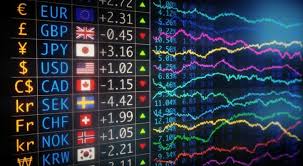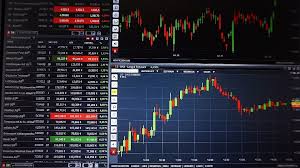
Islamic Forex trading, also known as Sharia-compliant Forex trading, has gained popularity in recent years among Muslim traders seeking to participate in the global currency markets without violating Islamic financial principles. The essence of Islamic finance is rooted in the adherence to Sharia law, which prohibits activities that can be considered haram (forbidden), such as charging or paying interest (riba), engaging in excessive speculation (gharar), and investing in industries that are considered unethical or harmful. Traders seeking to engage in islamic forex trading https://tradingarea-ng.com/ must understand these principles deeply to conduct their trading in a lawful manner. This article delves into the key concepts of Islamic Forex trading, its differences from conventional trading, and essential tips for Muslim traders.
What is Islamic Forex Trading?
Islamic Forex trading refers to trading in the foreign exchange market in a manner that aligns with Islamic laws and principles. Traditional Forex trading often involves the payment of swaps or rollover fees, which are prohibited in Islam due to their association with riba. Consequently, many Forex brokers offer Islamic accounts, also known as swap-free accounts, that do not charge or credit rolling fees. However, this is just one aspect of Islamic Forex trading.
Key Principles of Islamic Finance
To fully grasp the concept of Islamic Forex trading, it’s vital to understand the core principles of Islamic finance:

- Prohibition of Riba: The most critical aspect of Islamic finance is the prohibition of interest. Any form of interest, whether earned or paid, is considered haram and is strictly avoided.
- Risk Sharing: Islamic finance encourages sharing of risks among parties involved in a transaction. Traders should aim for a fairer distribution of risk rather than exploiting one party’s vulnerabilities.
- Prohibition of Gharar: This principle emphasizes the avoidance of excessive uncertainty and speculation in contracts. Traders should base their transactions on information and knowledge rather than on mere speculation.
- Ethical Investment: Investments should only be made in activities that align with Islamic ethics. Trading in haram substances such as alcohol, gambling, or pork-related products is strictly prohibited.
Differences Between Islamic and Conventional Forex Trading
The primary distinction between Islamic and conventional Forex trading lies in their adherence to Islamic principles. Here are a few critical differences:
- Swap Fees: As mentioned earlier, conventional Forex trading often involves swap fees, which are prohibited in Islamic finance. Islamic accounts, however, typically do not have these fees, allowing Muslims to trade without engaging in riba.
- Speculation: Conventional Forex trading can often lead to high levels of speculation, which could violate Islamic principles. Islamic traders need to have a more cautious and analytical approach to Forex trading.
- Ethical Considerations: Islamic Forex trading requires that traders invest in ethical and lawful markets, which often differs from conventional trading where the focus may primarily be on profit maximization.
How to Trade Forex Islamically

Engaging in Islamic Forex trading requires thorough knowledge and careful planning. Here are a few tips for Muslim traders:
- Choose a Reputable Broker: Seek a broker that offers Islamic accounts and is regulated by recognized financial authorities. Ensure that the broker complies with Sharia law and operates transparently.
- Understand the Trading Platform: Familiarize yourself with the trading platform provided by the broker. Understanding how to use the platform effectively can help you make informed trading decisions.
- Educate Yourself: Invest time in learning about technical analysis, market trends, and economic indicators that can affect currency prices. The more informed you are, the better your trading decisions will be.
- Set Clear Goals: Define what you want to achieve through your trading activities. Set realistic goals, and avoid being swayed by emotions or market hype. Stick to your trading plan.
- Practice Risk Management: Utilize stop-loss orders and position sizing to manage your risks. This is crucial for protecting your capital and ensuring long-term profitability.
- Stay Updated: Keep yourself informed about global financial news and economic events that may impact currency values. Economic indicators, interest rate decisions, and geopolitical events can influence the Forex market.
The Future of Islamic Forex Trading
As global interest in Forex trading continues to grow, so does the demand for Islamic trading options. Financial institutions and brokers are becoming increasingly aware of the need to cater to Muslim traders by offering Sharia-compliant products and services. This trend suggests a promising future for Islamic Forex trading, as more tools and resources become available for Muslim investors. Technology will also play a pivotal role in providing better trading solutions that align with Islamic principles.
Conclusion
Islamic Forex trading offers Muslim investors an opportunity to participate in the financial markets while adhering to their religious beliefs. By understanding the principles of Islamic finance, choosing the right broker, and making informed trading decisions, traders can engage in Forex activities that are both ethical and profitable. As more options become available, the landscape of Islamic Forex trading is likely to expand, opening doors for a new generation of Muslim traders.
